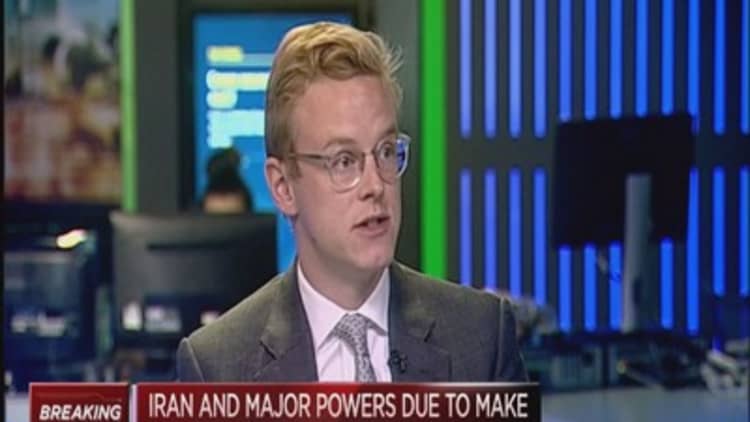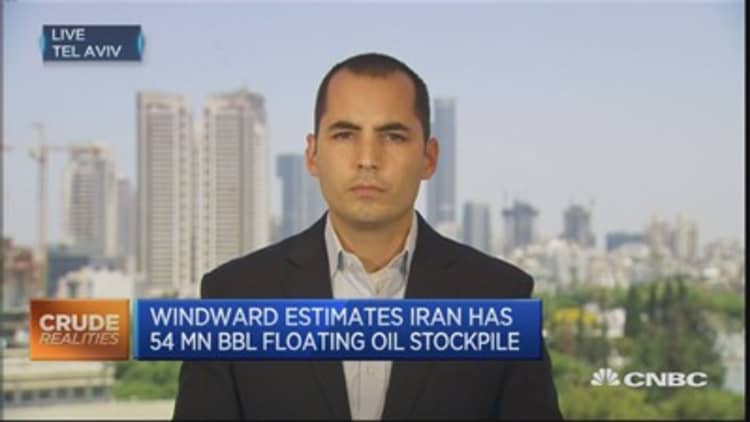
In its negotiations with the United States on any number of geopolitical issues, Russia has become accustomed to playing its "Iran card."
But after the West's historic nuclear agreement with Iran, some experts are suggesting Russia will have less of a hand to play in negotiations on various topics, not just with Washington but with other world leaders.
Ed Morse, head of commodities research at Citigroup, told CNBC that as a result of the agreement, Russian's position with regard to its oil exports to Europe is particularly vulnerable.
Read More'More pain coming' to oil sector: Energy investor
"Oil companies in Europe, especially the Mediterranean market, are eager to strike upstream exploration and production contracts in Iran and will want to show that they are eager to resume business ties there," Morse said. "The best short-term way to do that is to buy more Iranian crude, and the main victims of that will be Russia along with Iraq."
Even before the deal was signed, Donald Jensen, resident fellow at the Center for Transatlantic Relations, wrote that Russia is likely to lose out from such a deal over the long term. Iran will now have better access to global energy markets, providing competition for Russian energy, he said.
"Even as it tries to keep good ties with Moscow, Iran will likely offset them by pursuing better ties with the West," he said.
But others say they believe Russian President Vladimir Putin when he hails the deal as a positive step for the Middle East, which he has done publicly.

Alexander Kliment, director of Russia and emerging market research at Eurasia Group, told CNBC that if the Russians seriously wanted to scuttle an Iran deal, they had plenty of chances to do so.
Read MoreOil prices rise as stock draw shows strong demand
"The short-term oil price drop, if and when it materializes, will hit Russia, but for the Kremlin, that's a manageable price to pay in order to avoid a nuclear arms race in the Middle East or a U.S./Israeli strike on Iran, both of which have always been far worse options from the Russian perspective," Kliment said.
"In addition," he added, "easing the U.N. arms embargo will open up a potentially lucrative market for Russian arms exporters, who have already built good ties with the Islamic Republic."
Exports of oil and are the backbone of Russia's economy, and falling oil prices coupled with Western sanctions have taken a heavy toll on Russia's economy.
Read MoreAfter Iran nuclear deal, what's next?
Morse said he's already bearish on oil prices now and sees softer prices in the fourth quarter, with slightly higher prices going into next year.
"But if Iran produces with a surge, it should weigh heavily of oil prices," he told CNBC. "We are looking for a modest recovery of WTI to $56 in 2016, but a surge in Iranian production would make that unlikely."
Matthew Rojansky, director of the Kennan Institute at the Wilson Center, noted that while things could get tough for Russia if oil prices drop, Moscow itself had been instrumental in achieving this deal.
"Certainly, it reinforces the value of the Kerry-Lavrov track," he told CNBC, referring to Secretary of State John Kerry and Russian counterpart Sergey Lavrov.


